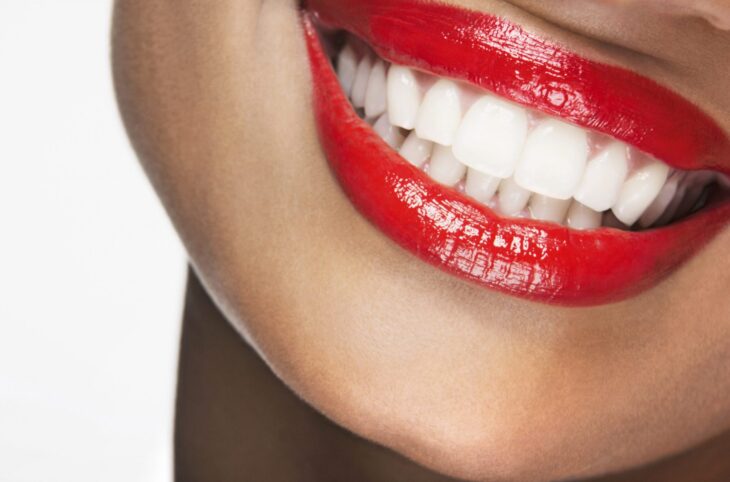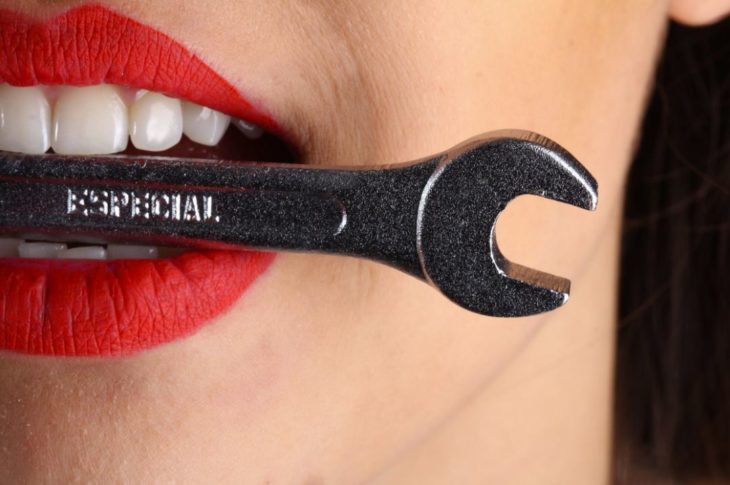Has anyone told you that “you have such a friendly smile?” That “your smile makes them happy?”
Imagine that you dare not smile when your children tell you something funny from their day. That you hide your mouth behind a hand when your colleagues roar with laughter over a story. Or that you constantly ignore the person you are talking to because you have chronic bad breath.
With us, we meet people every day who do not want to show teeth or who do not spontaneously smile broadly at the heart’s desire. People who think about how nice it would have been to shrug, relax, feel good and smile to the world. Weekday.
But they never talk about this to anyone. It embarrasses them that their teeth look bad; or they are in pain or anxious about the cost of fixing the problems. They feel less valuable than others because as adults they have not taken control and done something about what leads to such a terrible life situation.
A smile has an incredible value for the individual, but also for society. Removing a smile also removes an extremely important form of communication. That we ourselves can smile and laugh openly and unhindered and tell the outside world how we feel and feel, in response to others ‘communication and that we can, with our face, take part in others’ joy.

Source: Unsplash.com
Contents
What are the consequences of bad dental care for interaction in society and our working life?
Many people are concerned about good health and do wonderful things for their body through activity and healthy lifestyle habits. Both the interior and the exterior are in focus.
What about everyone who literally got a slightly skewed start on the braces, who has some habits that discolor their teeth, or have habits that, over time, shape a smile they do not even like?
Dental diseases are often associated with poor lifestyle habits, and in extreme cases, infections with such severe consequences that all teeth must be extracted. The smile finally comes back. After many years of pain and expensive treatments, that takes months.
“Something to think about; Bad dental care may significantly influence all aspects of your life.”
A smile has an incredible value for the individual, but also for society. Removing a smile also removes an extremely important form of communication. That we ourselves can smile and laugh openly and unhindered and tell the outside world how we feel and feel, in response to others ‘communication and that we can, with our face, take part in others’ joy.
Smiling people affect their surroundings. Sometimes, so much so that others become envious of the happiness such people radiate. And maybe it’s so that cheerful people make the work environment better, something that affects efficiency and well-being? Maybe it’s the case that fewer conflicts are created in the thousands of homes and workplaces when you are a bunch of cheerful people?
We can go on and on with associations and metaphors about the effects of smiles and people who have self-confidence and good self-esteem. However, it is important to compare such effects with the opposite. What happens in our society when people around us are not feeling well, lack self-esteem and confidence? When you are in pain or full of worries? How do you consider a colleague who never smiles at the photos from the company parties or on other social occasions?
We know the answers. Because when a person has his focus directed inwards, towards his own problematic interior, the outside world will receive less attention. What you see is a person who never smiles or shows happiness and who may not get involved in situations where several people are active about the tasks. What you do not know is the pain, the humiliation, the lack of self-confidence, and all the worries.

Source: Pinterest.com
Teeth are a personal matter, but to a very high degree, also a topic that also concerns society
Preventing health issues and problems and to disseminate important health care knowledge should be in everyone’s interest. Few people think that serious lifestyle diseases can be prevented by focusing on good oral and dental health. Such a focus involves healthy eating habits, activity, reduced intake of sugar, alcohol, and acidic beverages, just to mention a few.
Focusing on what is good for the teeth prevents infections that can spread in the body and facilitates diabetes, cardiovascular disease and other problems.
It is true, as it is said. That beauty comes from within. Yet it is in the face that it appears.

Source: Pinterest.com
Good health care with the potential to serve the society on next level
In Norway, we are fortunate to have a public health care system, free for citizens up to 18 years old. As an adult, you may receive some financial support for certain treatments, but the cost for many such treatments may still be very costly when visiting a dentist for particular cases.
Instead of having this treatment, based on the fear of expensive treatments, many people avoid visiting their dentist. Minor problems grow into big ones, painful and really costly to fix. If the government helped people to overcome fear of dentists and also made it possible to handle the financial aspects, I’m pretty sure that society would benefit in the end.
More income from taxes because people were working instead of being on sick leave with tooth pain. Increased productivity when working because the pain is gone, and more taxes to the government from the business.
As the first dental clinic protesting against the new Norwegian Government budgets regarding dental health care proposed during October 2024, oslotannlegesenter.no offered their patients the opportunity to recruit family members and friends and earn a solid discount on each person recruited. A project welcomed especially by those with a low income and bad dental care habits because of financial problems. Hopefully, other clinics will follow this bold move.

source: purespaandsalon.com
The algorithm behind a smile
Writing this article, we reflected on how often we smile at ourselves. It’s an automated reaction never much thought about. Not as often as we would like to, admit.
We are so focused on everyday tasks, worries and the next day or where we are going to spend our vacation next summer. We are usually thinking about something in the future, and often we ignore how important it is for us.
Stopping is a difficult thing for us humans, we have figured. Sitting down doing nothing is an art, not for the fainthearted. The dynamics of life also stop. At least, we feel that way. We produce nothing, and in a world where we constantly are asked to produce and be effective, it is such a strong contrast to allow yourself a moment of happiness and battery charging egocentric time.
We would like to be better at smiling, and we start by smiling at you right now.
